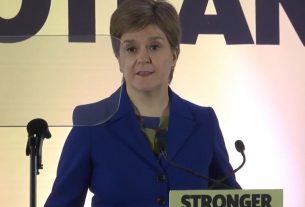The chancellor’s plan to combat the UK’s worst recession for 300 years has been attacked for its cuts to international aid spending that one former Tory minister claims will cause “100,000 preventable deaths, mainly among children.”
Critics have also hit out at other parts of Rishi Sunak’s historic spending review which will see the government borrow almost £400 billion in 2020 – a peacetime record amount. A public sector pay freeze will hit millions and has been described by the TUC as “a kick in the teeth for key workers.”
“Our health emergency is not yet over and our economic emergency has only just begun,” the chancellor told the Commons, explaining: “Our immediate priority is to protect peoples’ lives and their livelihoods.”
Foreign aid budget cut – minister resigns in protest
The chancellor’s claim has been seized upon by opponents of his plan to cut the overseas aid budget from 0.7% of GDP to 0.5%, given the consequences it will have. The move also breaks a Conservative election manifesto pledge to maintain the international aid budget at 0.7%
Former international development secretary Andrew Mitchell said the cut “will be the cause of 100,000 preventable deaths, mainly among children. This is a choice I for one am not prepared to make. None of us will be able to look our children in the eye and claim we did not know what we were voting for.”
A government minister has resigned in protest at the cut and Lady Sugg’s departure from sustainable development is indicative of the unpopularity of the policy around Westminster, signalling the onset of another Conservative rebellion.
“Many in our country face severe challenges as a result of the pandemic and I know the government must make very difficult choices in response,” wrote Sugg in her letter of resignation, continuing: “But I believe it is fundamentally wrong to abandon our commitment to spend 0.7% of gross national income on development.
“This promise should be kept in the tough times as well as the good. Given the link between our development spend and the health of our economy, the economic downturn has already led to significant cuts this year and I do not believe we should reduce our support further at a time of unprecedented global crises.”
All living former PMs have criticised the cut –they have also been unified in condemning the internal market bill – while the Archbishop of Canterbury called the choice to slash the overseas aid “shameful and wrong”.
Living wage increase
Sunak said the national living wage from April next year will be £8.91 per hour – an increase of 2.2% for approximately two million British workers, but still less than the £9.21 per-hour rate previously expected . Hospitality bosses have warned the pay rise for the country’s lowest paid workers will lead to job losses with the rise costing employers an extra £345 per-worker.
“The toughest thing is that so few of our staff will benefit from the increase because so many of them will lose their jobs,” said the chief executive of UKHospitality, Kate Nicholls, who called on the Treasury to help the sector, otherwise “we’re just going to see big losses in the New Year.”
Key announcements of spending review
The chancellor warned of the long term “scarring” of the economy from the pandemic which will still be 3% smaller in 2025 than was expected in the March budget. Unemployment is set to rise to 7.5% in 2021.
The key announcements – and some of the main sources of criticism – include:
- Spending on public services to combat coronavirus will be £55 billion; total departmental budgets will be £540 billion with day-to-spending rising by £14.8 billion.
- Cutting the international aid budget will be cut from 0.7% of GDP to 0.5%.
- A pay freeze for public workers although NHS and those earning less than 24,000 will be exempt.
- The living-wage will rise 2.2% rise to £8.91 per hour – less than the anticipated £9.21.
- £4 billion for a “levelling up fund” to deliver the government’s policy with the rewriting of the Green Book to favour projects that would otherwise be passed over.
- Roads, house building, broadband and the PM’s green agenda will get a boost in the form of £7.1 billion fund
- More than £4 billion allocated to return-to-work, restart and job-creation schemes.
- A new National Infrastructure Strategy gets £600 billion over five years with £100 billion invested next year – representing a £27 billion year-on-year increase.
- Health spending will climb £6.3 billion, NHS capital investment will increase £2.3 billion.
- £18 billion will go on testing, vaccination and PPE.
- School budget will increase by £2.2 billion on top of an at least 2% increase per-pupil funding.
- £400 million is set aside to help recruit 20,000 more police officers by 2023 with £1.25 billion new funding for new prison places.
- Local authorities will share an extra £3 billion.
- The rail network will receive an additional £2 billion in government subsidies.
Today’s spending review follows the £16.5 billion extra spending on defence announced last week (November 19).




